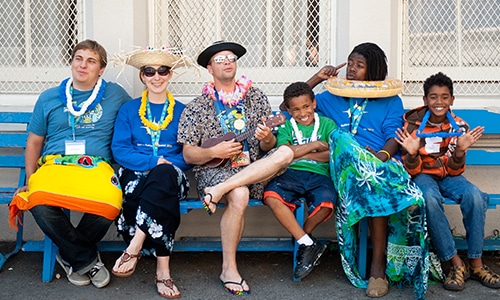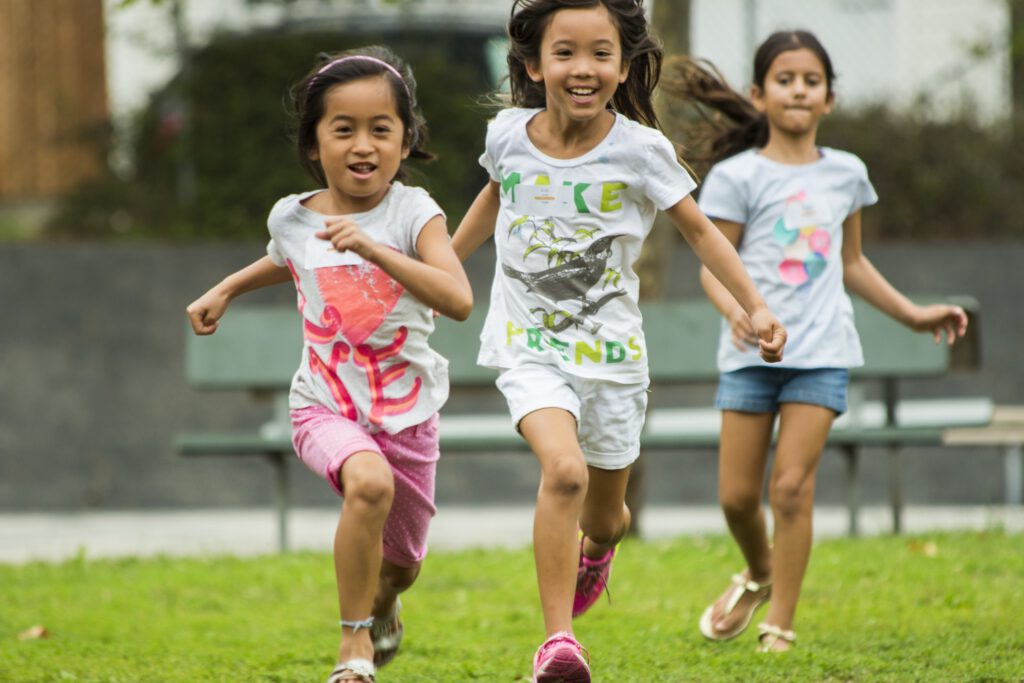Empathy fundamentals for kids
Imagine all the amazing ways we could change the world if everyone approached problem solving by truly understanding what people need before creating solutions. Becoming a change-maker requires empathy: putting yourself in someone else’s shoes in order to see the world in different ways.
When it comes to great innovation, Galileo defines empathy as:
- Listening carefully to other people’s ideas
- Being patient with other points of view
- Incorporating and building on other people’s ideas
- Building relationships across difference
Reinforcing these tenants with our kids is important, and the best way to do that is through practice. Take a look at these scenarios as opportunities to practice empathy:
- Your child wants to make a gift for a friend/family member
- You’re going to renovate or redecorate a room in your house
- Your child is working on a school project with a peer
- Your child wants to do charitable work for a person or organization in need
Try these strategies from David and Tom Kelley’s book Creative Confidence:
Show Me
A great exercise when you’re making something new (or changing something existing). If you’re redecorating a room, for example, take time before moving furniture or buying new decor to ask the people who will use it—family members, neighbors, friends—to show you what they do in the space. Have them walk around in it, sit down, turn on lights, etc. Take notes on what they really do, rather than assuming what they might do, to help you plan your design.
Think Out Loud
This pairs well with the “show me” technique and involves having your users narrate what they’re doing and what they’re thinking about as they do it to help you better understand their motivations and reasoning. Then make your project more inclusive by inviting those users to help with the final design.
Draw It
When working with a classmate on a school project, this method involves each kid asking the other to visualize their final product through a drawing. The drawings can be simple, but help reveal how each one thinks about the project they’re embarking on, clarifying points of difference from the start and helping to prioritize their activities.
Five Whys
This works well for creating things that address true needs, like a gift or a charitable effort. For example, if your child wants to do something to give back, have them ask themselves about a problem they want to help solve. Followed up by asking whys in response to each answer. These encourage kids to examine and express underlying reasons or causes to get to the real thing they want to solve.
One changemaker (and Galileo camper) we know, Justin, was concerned about the planet’s dwindling frog population, then asked “why” and found that their extinction was linked to habitat destruction,. He asked “why” again to find that a big part of that destruction was plastic waste and now works to clean up plastic waste in Cameroon, transforming plastic trash into reusable treasure.
Incorporating Empathy Into Your Family Routine
Make empathy an ongoing part of your daily life with a few simple activities to help the whole family practice (with thanks to Harvard’s Making Caring Common Project for the first five):
Have Family Meetings
Hold a family meeting whenever you’re dealing with a challenge or conflict, using it as an opportunity for everyone to practice both giving and receiving empathy. When you meet, give your kids a voice and listen carefully to their views, while also encouraging them to take the perspective of other family members.
Encourage Empathy for Peers
Ask kids about their classmates and other peers. If they’re experiencing a conflict with someone, ask them to tell you about their own perspective, and to consider where their friend/classmate is coming from. What circumstances or perspectives might help explain the conflict from the other person’s point of view?
Reflect on Empathy & Caring
When you’re together, comment when someone exhibits strong empathy—or shows a lack of empathy—either in your daily life or in a book or on television. Discuss why acts of empathy are important and why lacking empathy can be harmful.
Discuss Ethical Dilemmas
Where appropriate, talk through ethical dilemmas with your kids that help them appreciate various perspectives, for example, “Should I invite a new friend to my birthday party even though she won’t know anyone else?”
Support Doing “With”
Encourage your kids not just to “do for” others, but to “do with” others, working with diverse groups of people to respond to school, community, or global problems.
Take the Empathy Challenge
Try the Change-maker Families 1-Month Challenge, with suggestions for specific things to say, do and try each week of the month (and why) to strengthen your family’s empathy skills.
Being empathetic isn’t always easy, but it is essential. Whether the change you want to make is small or large, you have to work toward to seeing the world the way others do in order to make the change we want to see in the world.





